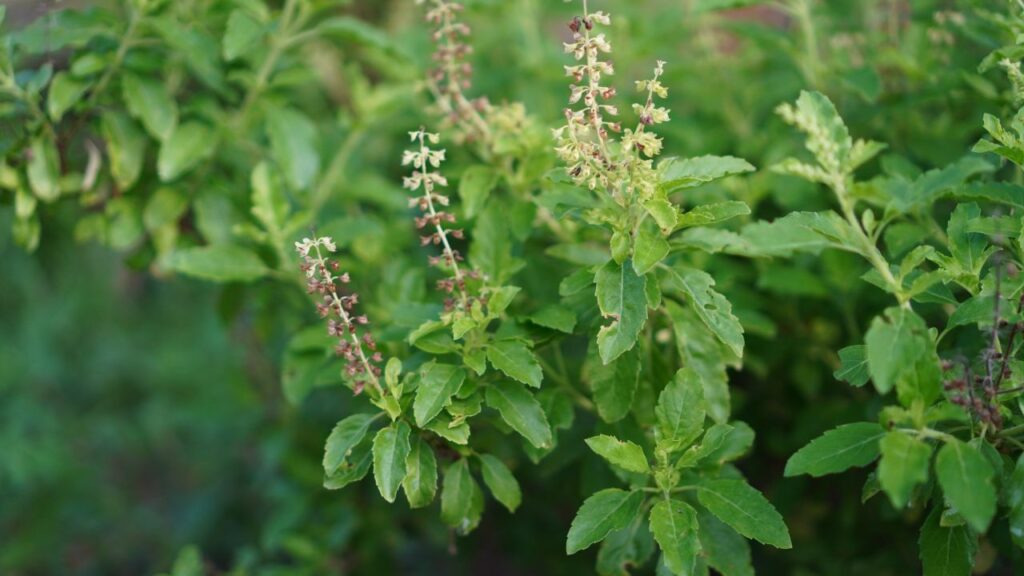In India, the basil plant, known as Tulsi, is commonly found in most households. It holds immense religious significance as well as numerous medicinal properties. Tulsi has been recognized for its ability to boost the immune system, improve digestion, and promote health for skin and hair. Its natural hydrating features help maintain skin moisture, combat dryness, and alleviate issues related to pimples.
Tulsi is rich in various beneficial compounds, including antioxidants, antibacterial, antiviral, anti-flu, antibiotic, and anti-inflammatory properties. While many people cultivate Tulsi plants in their homes, not everyone is aware that there are several types of Tulsi. Most common is the green Shyama Tulsi, but other varieties exist, each with unique characteristics and benefits. Let’s explore the different types of Tulsi and their distinct features.
Types of Tulsi
| Type of Tulsi | Description | Health Benefits | Cultural Significance |
|---|---|---|---|
| Shyama Tulsi | Shyama Tulsi has purple leaves and is also known as Krishna Tulsi. | Rich in antioxidants and anti-inflammatory properties; supports the immune system. | Revered in Hindu culture as a favorite of Lord Krishna. |
| Ram Tulsi | Ram Tulsi features green leaves and is sometimes called Shree Tulsi. | Known for its sweet flavor and used in religious rituals and ayurvedic practices. | Commonly found in homes, associated with health and auspiciousness. |
| Shwet Tulsi | Shwet Tulsi, or Vishnu Tulsi, is easily identifiable by its white flowers. | Though less commonly grown, it’s believed to offer unique healing properties. | Often linked to Lord Vishnu and used in spiritual practices. |
| Van Tulsi | Van Tulsi, or wild Tulsi, has light green leaves and a lemon-like aroma. | Helps improve immunity and is a good source of Vitamin A; used in herbal teas. | Recognized for its adaptability in the wild and traditionally valued in folk medicine. |
Benefits of Tulsi
Medicinal Properties
Tulsi is renowned for its extensive medicinal properties. It not only acts as a natural remedy for common ailments, such as coughs and colds but also plays a vital role in reducing stress and enhancing mental clarity. The essential oils derived from Tulsi are often used in aromatherapy for their calming effects.
Skincare Applications
The anti-inflammatory and antibacterial properties of Tulsi make it an excellent ingredient in skincare. It helps soothe irritated skin, reduce acne, and provides nourishment that can lead to a healthy, glowing complexion.
Boosting Immunity
Consuming Tulsi regularly can significantly enhance the body’s immune response. It is particularly useful during seasonal changes, helping to ward off illnesses and infections.
Conclusion
Tulsi is not just a herb; it is a holistic remedy that has been cherished for centuries. Its various types, each with unique properties, offer numerous health benefits that can contribute to overall well-being. Incorporating Tulsi into daily life, whether through consumption or as part of spiritual practices, can be highly beneficial. Embrace the power of Tulsi in your health regimen today!
